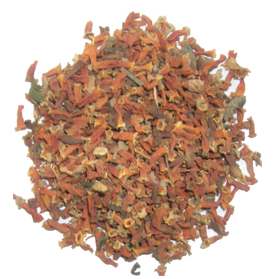Your cart is currently empty!
Nyctanthes arbor-tristis Linn.

![]()
Bengali Name : Sheoli, Singhar, Shephalika
English Name : Night Jasmine, Night -flowering Jasmine
French Name : Jasmin de nuit
German Name : Trauerbaum, Nachtjasmin
Gujarati Name : Harshangar
Hindi Name : Haar, Harsinghar, Harsingar
Kannada Name : Parijat
Latin name : Nyctanthes arbor-tristis Linn.
Marathi Name : Partak, Khurasali, Parijatak
Persian Name : Gulkamah
Punjabi Name : Kuri, Laduri, Pakar
Sanskrit Name : Parijataka, Parijata, Sephalika, Rajanikasa, Harshringar
Urdu Name : Harsinghar
Description : The flowers are anthelmintic, antioxidant, astringent to bowels, bitter, carminative, cholagogue, hepatoprotective, immunostimulant, laxative and stomachic. Useful in haemorrhoids.
Benefits of Night Jasmine (Harsinghar)
- Night Jasmine (Harsinghar) is antibacterial, anti-inflammatory, anthelmintic, expectorant, bitter, tonic, febrifuge and a mild purgative.
- The flowers are bitter astringent, ophthalmic, stomachic and carminative.
- Night Jasmine is very useful in treating constipation in children.
- The leaves are used in Ayurvedic medicine, to treat sciatica, arthritis, fevers, rheumatism and various painful conditions.
- Its leaves are also blend into a paste and used in skin related troubles, especially ringworm.
- The fresh leaves are boiled in mustard oil and used externally for treating ringworm.
- The seeds are crushed and the aqueous paste is applied externally on the piles. They are also useful in treating baldness, scurvy and affections of the scalp.
- The decoction of night jasmine flowers is used in treating gout.
- Night Jasmine (Harsinghar) is also used to treat anxiety, restlessness, headaches, gastritis, hepatitis, diarrhea, vertigo and dysmenorrhoea.
Recommended Dosage : 3 to 5 g powder of flowers.
Contraindication : This herb has no known warnings or contraindications.






Leave a Reply
You must be logged in to post a comment.